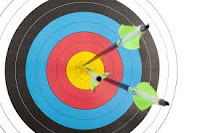Before you wade into the dizzying numbers of therapies
start here to review a primer on immunity. What's below is taken from the UK patient.portal website. There is active and passive immunity:
Active immunity - offer protection by injecting VIRUS (live or inactive) right into the individual
This is the stimulation of the immune mechanism to produce antibodies by giving an antigen as a vaccine. Such vaccines may be:
- Live attenuated viruses (rubella, measles, oral polio, mumps) or bacteria - bacillus Calmette-Guérin (BCG).
- Inactivated viruses (parenteral polio, hepatitis A) or parts of the bacterium or virus (pneumococcal vaccine, influenza).
- Inactivated bacterial toxins (diphtheria and tetanus).
- Genetically engineered (hepatitis B vaccine).
Passive Immunity - backdoor method -- offer protection via injecting immunoblogins or antibodies into the individual. I
mmunoglobulins are glycoprotein molecules produced by plasma cells (white blood
cells). They act as a critical part of the immune response by
specifically recognizing and binding to particular antigens, such as
bacteria or viruses, and aiding in their destruction.
This is achieved by giving immunoglobulins and the protection is immediate but lasts only a few weeks.
There are two types of immunoglobulins:
- Human
normal immunoglobulin (HNIG) from pooled plasma. This contains
antibodies to infections prevalent in the donor population. Some of
these, such as that for hepatitis A, may be falling, ultimately
affording less protection.
- Specific immunoglobulin for tetanus,
varicella-zoster virus, rabies and hepatitis B. These are derived from
pooled serum of convalescent patients.
READ MORE



